

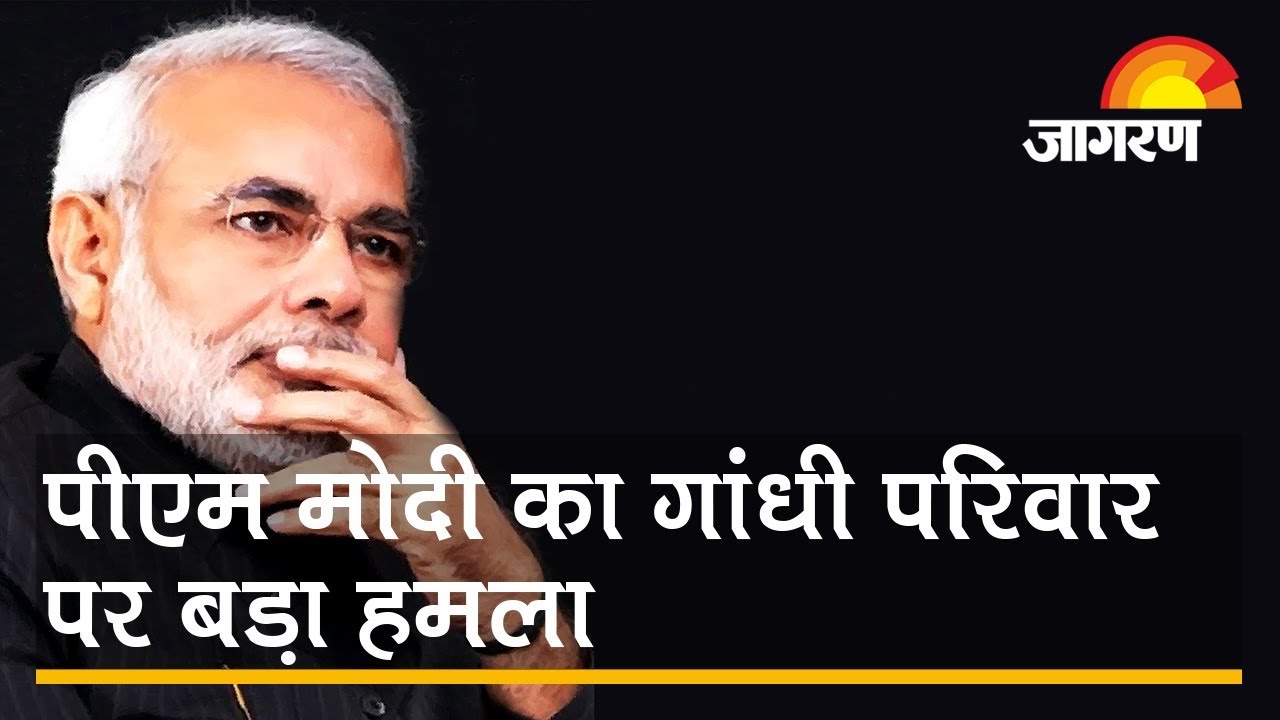
Prime Minister Narendra Modi slammed the Congress for their "predatory approach" and "politics of family first and polarisation" during his reply to the Motion of Thanks in Rajya Sabha. He highlighted the success of his government's development model based on "nation first" and "saturation" of welfare schemes. PM Modi also pointed out the disparities in sharing the benefits of development under previous Congress governments and emphasized his government's commitment to uplift the marginalized sections of society, such as women, farmers, and Dalits. He stressed on the implementation of 'Sab ka Saath, Sab ka Vikas' and the strengthening of the SC and ST Act as evidence of his government's inclusive policies.
"Nation First, Family Last": PM Modi's Scathing Attack on Congress's Political Approach
Prime Minister Narendra Modi recently launched a scathing attack on the Congress party, accusing it of prioritizing "family first" and "polarization" over the nation's interests. During his reply to the Motion of Thanks in Rajya Sabha, Modi slammed the Congress's "predatory approach" and emphasized his government's commitment to "nation first" and "saturation" of welfare schemes.
Background:
The Prime Minister's criticism stems from the Congress's long history of alleged nepotism and corruption. The Gandhi family, which has dominated the party for decades, has been accused of using its political power to benefit its members and allies. This has led to perceptions that the Congress prioritizes the interests of the family over those of the nation.
Furthermore, the Congress has often been criticized for its reliance on divisive politics to consolidate its vote bank. This has included playing on religious and caste sentiments to mobilize support. Such tactics have damaged the unity and harmony of the country.
PM Modi's Response:
In his speech, Prime Minister Modi highlighted the achievements of his government in implementing development programs that benefit all citizens, regardless of their social or economic status. He emphasized the importance of "Sab ka Saath, Sab ka Vikas" (inclusive development) and pointed to measures such as the strengthening of the SC and ST Act to uplift marginalized communities.
Modi contrasted his government's inclusive approach with the Congress's divisive politics. He accused the Congress of using caste and religion as "tools of polarization" to divide the country.
Top 5 FAQs and Answers:
What does "family first" mean in the context of Congress's politics?
What are the specific allegations of corruption against the Congress?
How has the Congress used polarization to gain political support?
What is the significance of PM Modi's emphasis on "nation first"?
How do PM Modi's development policies differ from those of the Congress?
Conclusion:
Prime Minister Modi's attack on the Congress's "family first" and polarizing politics highlights the deep ideological divide between the two parties. While the Congress has historically relied on divisive tactics to gain support, Modi's government has emphasized inclusive development and unity. The debate over these contrasting approaches will continue to shape the political landscape of India for years to come.
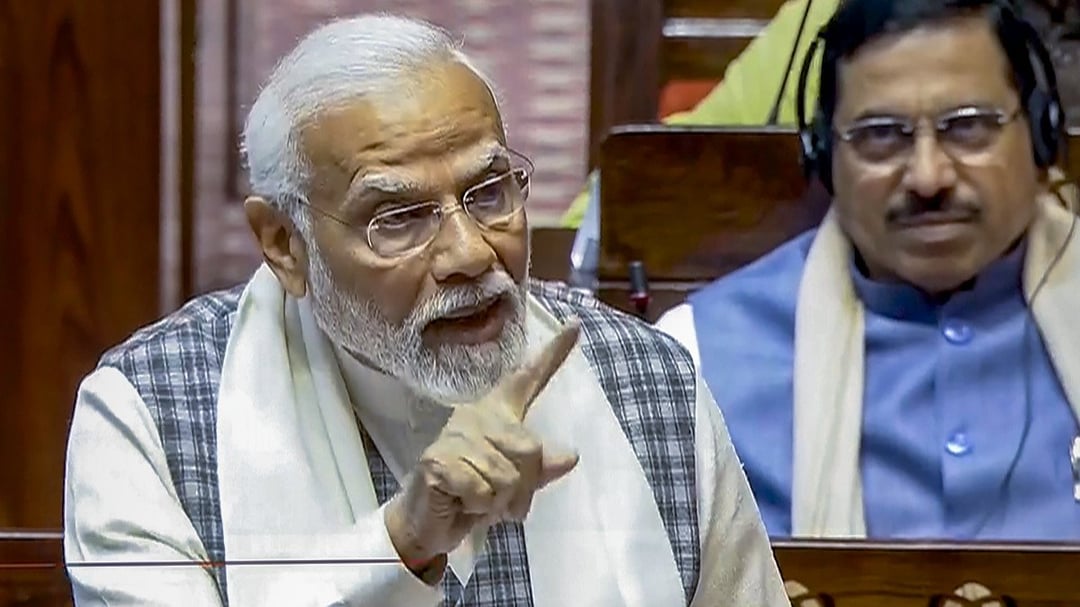
In his address to the Rajya Sabha, Prime Minister Narendra Modi criticized the Congress party for their "family first" approach and "appeasement policy". He stated that expecting "Sabka Saath, Sabka Vikas" from Congress would be a mistake as the party is solely dedicated to one family. PM Modi further highlighted how the Congress has historically marginalized Dr. Baba Saheb Ambedkar and his contributions, but now are forced to raise slogans of "Jai Bheem" due to electoral compulsion. He also mentioned his government's efforts towards inclusive governance and providing constitutional status to the OBC panel, a long-standing demand by OBC MPs from all parties.
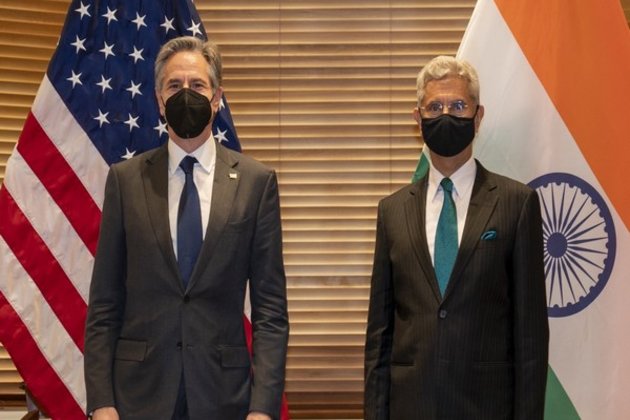
External Affairs Minister S. Jaishankar addressed the Parliament regarding the deportation of over 100 Indian nationals from the US, assuring that the government is actively engaging with the US to ensure the deportees are not mistreated. He also emphasized the need for cracking down on the illegal immigration industry and taking necessary action against agents based on information provided by the deportees.
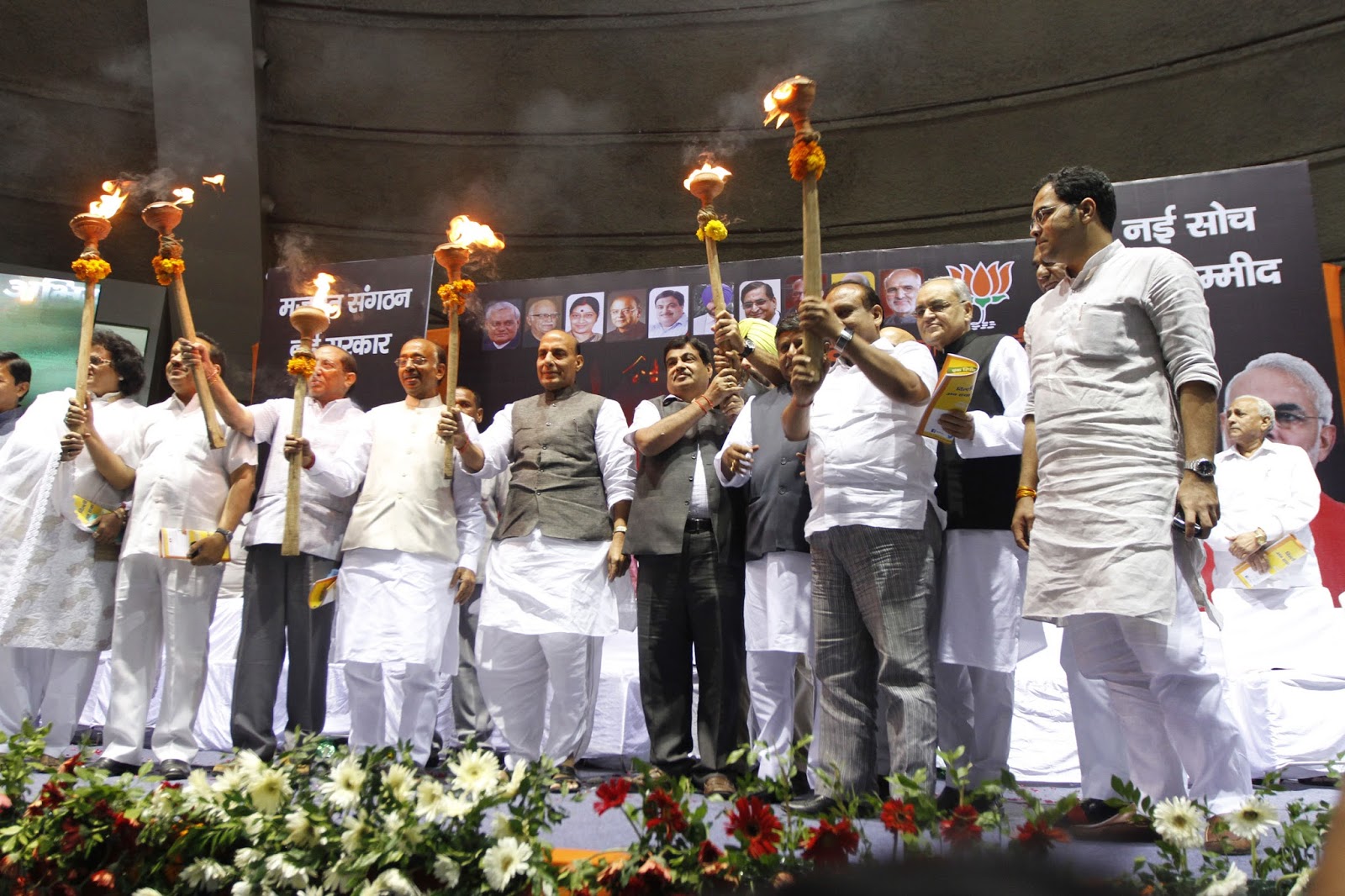
Exit polls indicate a potential major return for BJP after 27 years of opposition rule as voter turnout reaches 57.70%. Special polling stations were set up for senior citizens and people with disabilities and a QMS app was introduced to streamline the voting process. The results are highly anticipated to mark a significant shift in Delhi’s political scene.
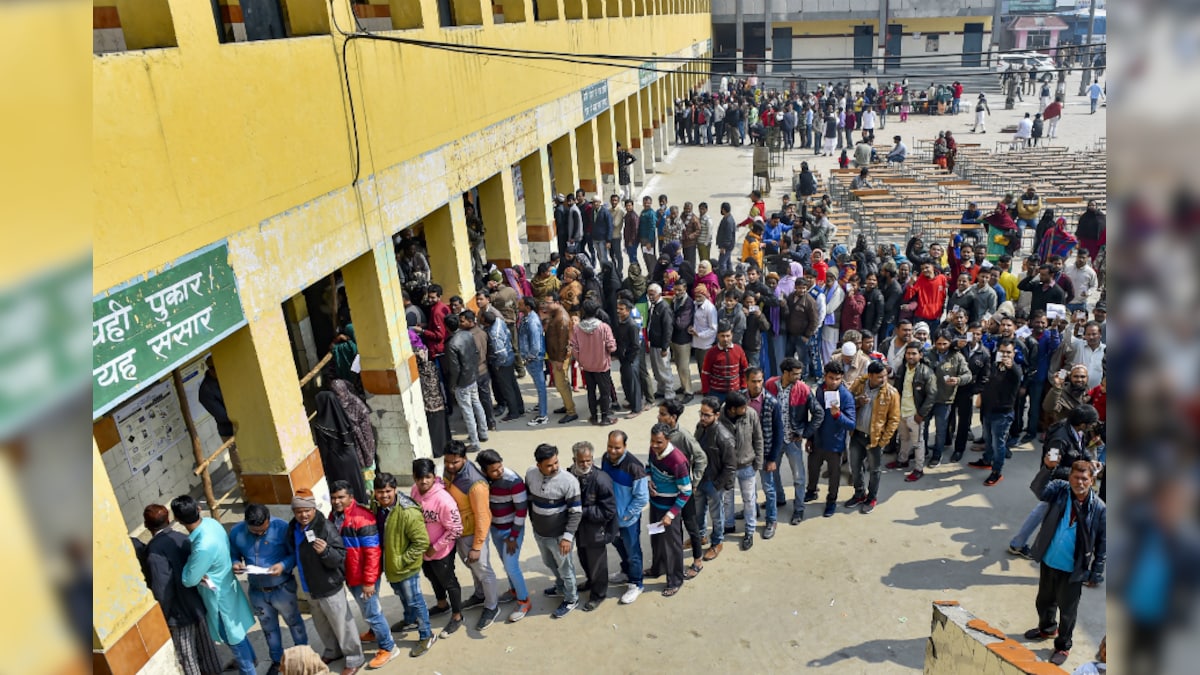
In a surprising turn of events, Delhi saw its lowest voter turnout since 2008 during the recent assembly elections, with only 60.4% of eligible voters casting their votes. The Election Commission of India (ECI) reported that this year's turnout is significantly lower than previous years, with the North East district recording the highest turnout at 66.25% and South East district recording the lowest at 56.31%. The ECI has reassured that these figures are provisional and will be updated soon, with 699 candidates competing in the elections and results to be announced on February 8.
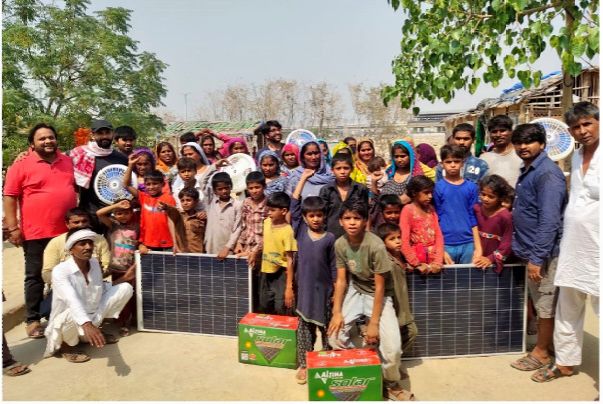
In a historic moment for democracy, hundreds of Pakistani Hindu refugees in Delhi exercised their right to vote in the Assembly elections for the first time. After years of living in uncertainty and statelessness, these refugees, who were granted Indian citizenship under the Citizenship (Amendment) Act, finally had a voice in shaping the future of their adopted homeland. This powerful moment stands as a symbol of their journey and struggle, and brings hope for a better future for the community as they participate in the democratic process.
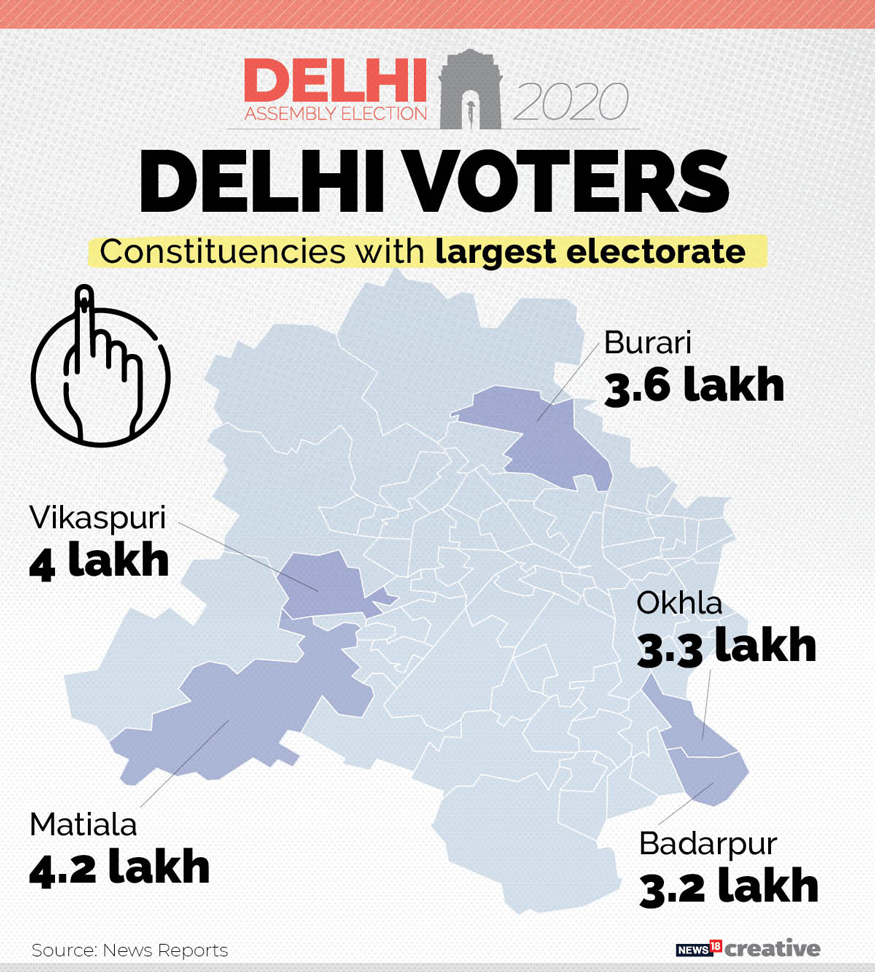
With polling underway in Delhi's 70 assembly constituencies, the Election Commission has reported a voter turnout of 46.55% as of 3 pm. The Northeast district recorded the highest turnout at 52.73% while the New Delhi district saw the lowest at 43.10%. This crucial election will decide the fate of 699 candidates and has drawn high-profile voters such as President Droupadi Murmu, Vice-President Jagdeep Dhankhar, and Delhi Chief Minister Arvind Kejriwal. Stay updated with the latest political news and stock market updates on Zee Business.
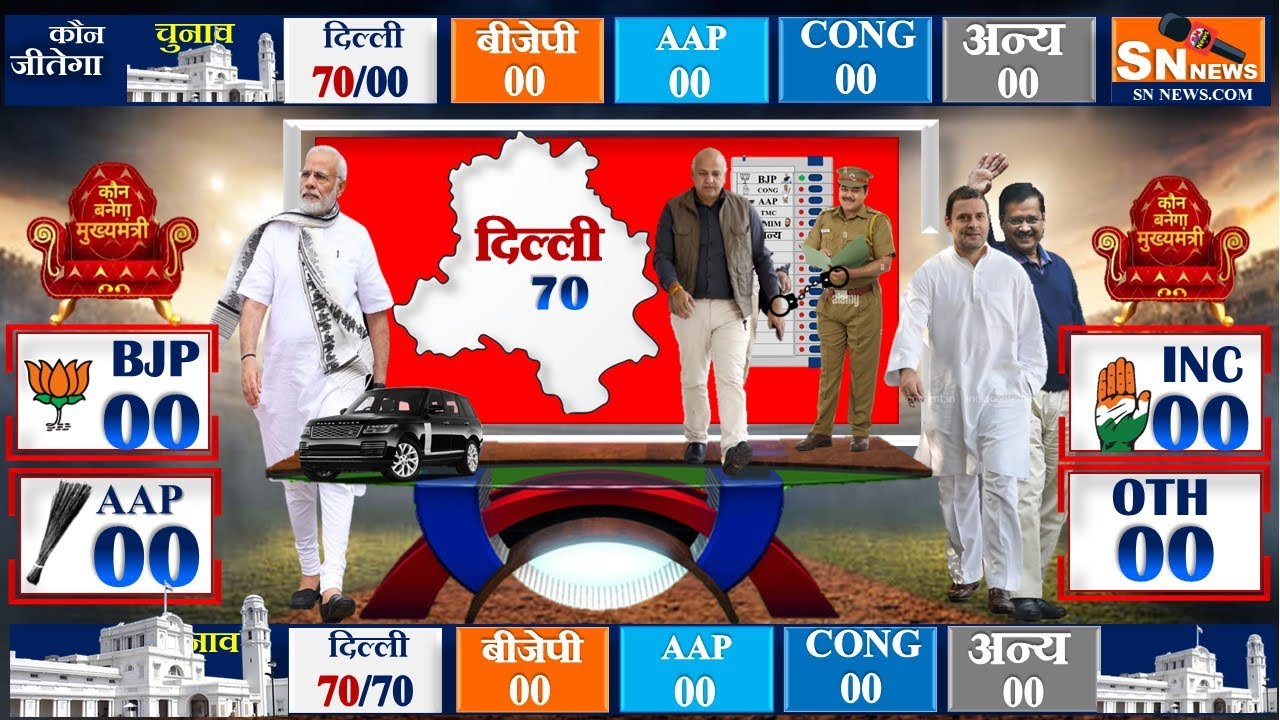
As Delhi goes to polls with a voter turnout of 46.55% till 3 pm, chaos erupts in several constituencies due to allegations of fraudulent voting. Key candidates from major parties face tough competition as the AAP aims for a third consecutive term, while the BJP and Congress strive for a comeback. The pre-poll discourse was marked by fierce campaigning and aggressive name-calling, with issues ranging from welfare schemes to corruption and water quality. In the midst of this, the DCP of South East Delhi dismisses allegations of voter bribery in Sarai Kale Khan.

With Delhi's Assembly elections just around the corner, the BJP has brought attention to a report by JNU professors on the alleged negative impacts of Rohingya and Bangladeshi infiltrators on the city's infrastructure. The research reveals a demographic shift in areas such as Seelampur, Jamia Nagar, and Zakir Nagar. BJP spokesperson Sambit Patra claims that these infiltrators have taken over jobs from Indian workers, with the support of AAP and Congress. The issue of fake voter identities and criminal connections is also addressed in the report.
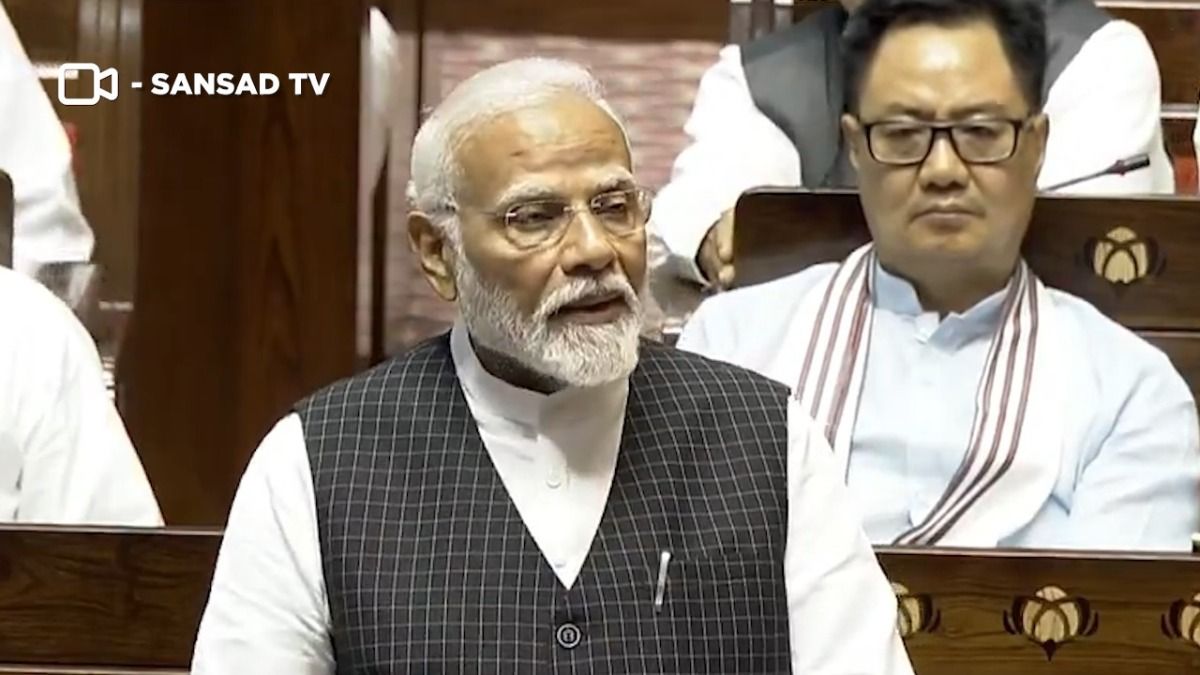
In a fiery Lok Sabha speech, Prime Minister Narendra Modi responded to criticism from the opposition by highlighting his government's achievements in real development for the people. He also took a dig at Leader of Opposition Rahul Gandhi and AAP convenor Arvind Kejriwal for prioritizing photo opportunities over the needs of the poor. Modi emphasized that the President's address further strengthened the government's commitment to a developed India.